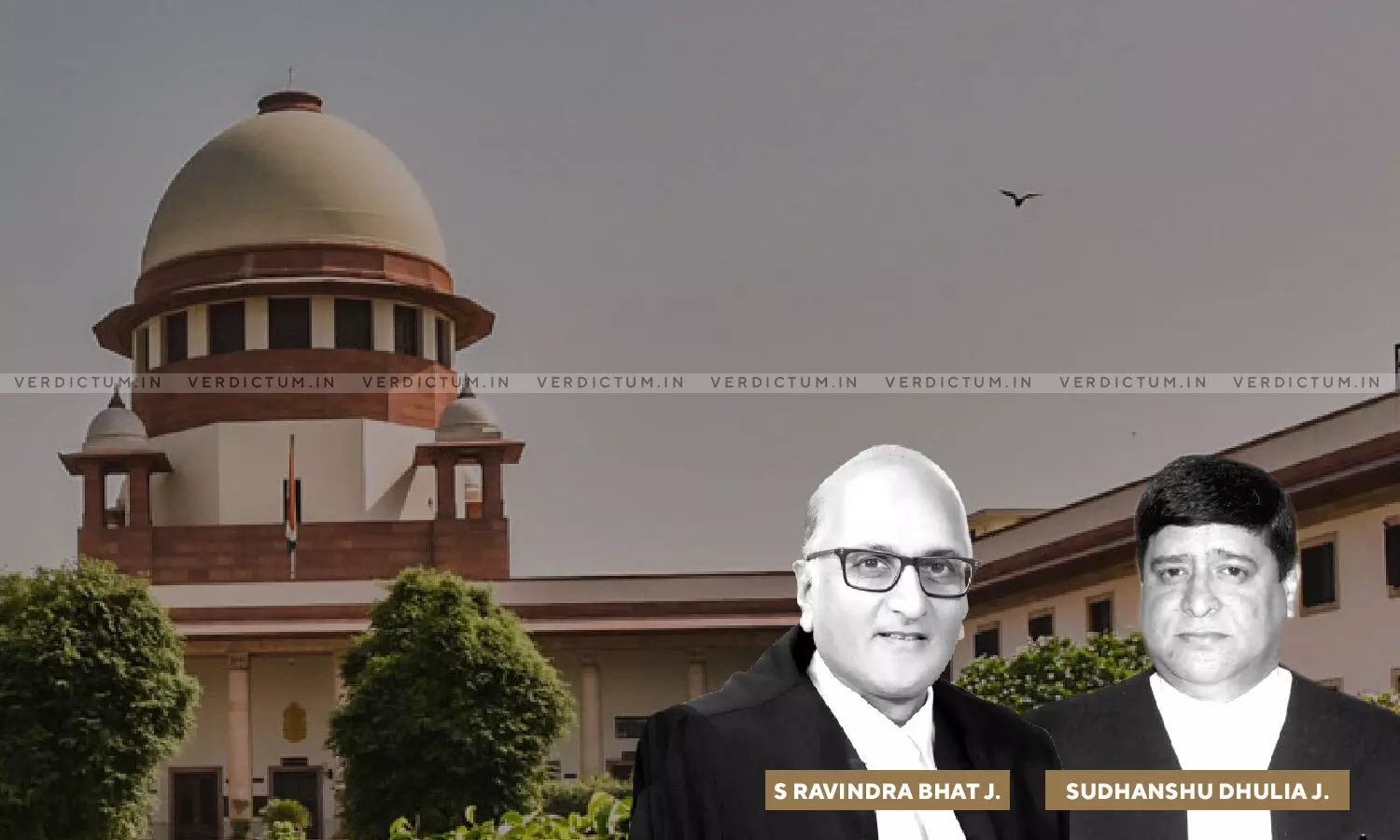
Acquittal In Criminal Trial Would Not Amount To Reversal Of Findings Of "Misconduct" In Departmental Proceeding: SC
 |
|While holding that criminal proceedings and department proceedings are entirely different, the Supreme Court has observed that a mere acquittal in a criminal trial, would not amount to a reversal of the findings of "misconduct", which were arrived in a departmental proceeding.
The Bench of Justice S Ravindra Bhat and Justice Sudhanshu Dhulia observed thus "…merely because one has been acquitted in a criminal trial, it would not amount to a reversal of the findings of "misconduct", which were arrived in a departmental proceeding."
The Bench emphasized that disciplinary proceedings are governed by a different standard of proof, which are different from what is applied in a criminal proceeding.
"…in a criminal trial the burden lies on the prosecution to establish the charge beyond reasonable doubt and in a departmental proceeding, the charges have to be proved on the basis of preponderance of probabilities.", the Bench observed.
The Court was dealing with an appeal challenging order passed by a Division Bench of Rajasthan High Court (Jaipur Bench) upholding the order of the Single Judge allowing the writ petition of a Constable, quashing his dismissal from service.
The facts of the case were that one Phool Singh had entered Rajasthan Police Service as a constable, in the year 1987. While he was posted at the Police Station Mania, Rajasthan, he allegedly committed a criminal offence, apart from an act of gross indiscipline.
Charges were framed against him under Section 392 of Indian Penal Code and Section 3/25 of the Arms Act by the Trial Court. The Trial Court convicted Phool Singh, under Section 392 IPC and Section 3/25 Arms Act and sentenced him for one-year rigorous imprisonment.
This order was challenged by Phool Singh in appeal and the Sessions Judge, Dholpur, set aside the order of the Trial Court, giving "benefit of doubt" to the accused.
Meanwhile, a departmental proceeding had also been initiated against the delinquent constable on a similar set of charges.
All charges were ultimately proved against him in the disciplinary proceedings and he was dismissed from service. An appeal against dismissal was dismissed by the appellate authority.
After his acquittal by Sessions Judge, Phool Singh moved an application before the authorities for his reinstatement. Since the authorities did not respond favourably, he filed a writ petition before a Single Judge of Rajasthan High Court.
The Single Judge quashed his dismissal order on the ground raised by the Phool Singh that now since he has faced a criminal trial on the same set of charges, where he was ultimately acquitted by the Sessions Court.
The Single Judge ordered his reinstatement with 50% back wages.
State of Rajasthan filed an appeal against this order before Division Bench of the High Court which was dismissed.
Aggrieved, State approached Supreme Court.
Advocate Milind Kumar appeared for the State whereas Phool Singh was represented by Advocate V. Elanchezhiyan.
The Supreme Court held thus "There should be no ambiguity in law on this subject. A departmental proceeding is different from a criminal proceeding. The fundamental difference between the two is that whereas in a departmental proceeding a delinquent employee can be held guilty on the basis of "preponderance of probabilities", in a criminal court the prosecution has to prove its case "beyond reasonable doubt". In short, the difference between the two proceedings would lie in the nature of evidence and the degree of its scrutiny."
The Court noted that the Disciplinary Authority is best equipped to reach a finding whether a "misconduct" has been committed. The Court further noted that the prime concern of a Judge should be whether such a finding has been arrived after following a fair procedure.
The Court observed that "In the case at hand, respondent was convicted by the Trial Court and in appeal the Appellate Court only acquitted him by giving him a "benefit of doubt"."
Therefore, the Court set aside the Order of the Single Judge and the Division Bench of High Court.
Cause Title- State of Rajasthan & Ors. v. Phool Singh
Click here to read/download the Judgment